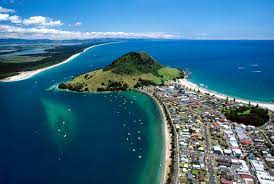10 Steps to Secure a Junior Doctor Job in New Zealand (Registrars and House Officers)
New Zealand is a popular destination for junior doctors seeking formal specialist postgraduate training or just experience of working in a different healthcare system. Registrars and House Officers, collectively called Resident Medical Officers, are keenly sought for jobs throughout the country. This guide takes you through the key steps to securing the right position.
Before applying for resident medical officer jobs in New Zealand, we recommend that you make some detailed preparations to ensure that you understand the healthcare system, medical regulatory requirements, career structure, recruitment cycle and geographical locations of New Zealand to enable you to discern your opportunities within the medical system and then select the jobs which are right for you and avoid wasting time on applications for unsuitable positions.
We have listed 10 steps which should help to put you on a sound footing to securing the right house officer or registrar job.
#1: Understand the New Zealand Healthcare System
The public sector dominates New Zealand healthcare providing over 70% of healthcare services and most emergency services. Just over one third of New Zealanders have private medical insurance. The private healthcare system, which operates separately from the public system, focuses on elective surgery, out patient consultations, radiology procedures and dentistry.
The private sector has limited job opportunities for house officers and registrars and in general, cannot provide the level of supervision required by the Medical Council of New Zealand for provisionally registered physicians. Most physicians seeking resident medical officer roles will therefore have to concentrate their job search on the public sector healthcare system.
Our article about New Zealand's healthcare system describes in detail the structure and delivery of healthcare in New Zealand. Further articles in the New Zealand section of the website regularly report new developments including the recent large investments made by the New Zealand government into the hospital reconstruction projects designed to upgrade the hospital infrastructure, particularly emergency and intensive care services. Of particular note are the reconstruction of Whangarei Hospital in the Northland Region and redevelopment of Taranaki Hospital in New Plymouth, Project Maunga, which contains a new medical oncology department.
In July 2022, the twenty district health boards which ran the public healthcare system were disbanded and merged into the unified and centralised organisation Te Whatu Ora Health New Zealand, which together with Te Aka Whai Ora, the Māori Health Authority and the Public Health Authority, are now collectively responsible for running New Zealand's public healthcare under the direction of the Ministry of Health.
If you are successful in securing a job offer from one of New Zealand's public sector hospitals, your employer will be Te Whatu Ora Health New Zealand. It is worth noting that permanent contracts of employment can be transferred from one hospital to another if you change job in accordance with training and employment requirements.
New Zealand Public Hospitals
Hospitals are graded by bed capacity and the services offered, generally falling into three categories:
Tertiary hospitals
Large hospitals (500 + beds) offering highly specialised acute and elective medical services located in the cities of Auckland, Wellington and Hamilton in the North Island and Christchurch and Dunedin in the South Island. New Zealand's two medical schools are located in Auckland (Auckland University) and Dunedin (Otago University).
Regional and District General Hospitals
Small - medium sized hospitals with 50- 500 beds providing acute and elective secondary and often selected tertiary medical services located in the smaller cities and towns including Palmerston North, Hastings, Whangarei and Tauranga.
Rural Hospitals
Small hospitals with 10-50 beds located in remote towns and rural areas. These facilities are run by general practitioners, rural medicine specialist physicians, visiting specialists, house officers and registrars and specialise in the provision of medical care to isolated communities including general practice (family medicine), emergency medicine, obstetrics, psychiatry, elective surgery and internal medicine. Rural hospitals are located throughout New Zealand including Kaitaia and Hawera.
Each of these hospitals provides a different level and type of experience. The postgraduate medical specialist training programs in New Zealand require a "run" (rotation) in each type of hospital to satisfy the basic or advanced training requirements.
#2: Understand the Medical Regulatory Scopes and Pathways
The Medical Council of New Zealand is the single medical regulatory authority responsible for registering and licensing all physicians practising in New Zealand. The various scopes of registration and pathways are detailed in our article Guide to Medical Professional Registration in New Zealand (Physicians).
Junior doctors applying for house officer and registrar jobs must be eligible for general or provisional general registration with the Medical Council of New Zealand (MCNZ) and there are several pathways to achieve this. The appropriate pathway will depend upon the medical degree, professional registration status and jurisdiction of practise of the physician and will determine the class of registration available to in New Zealand.
New Zealand and Australian medical graduates
This pathway is for New Zealand and Australian medical graduates wanting to register within the Provisional General scope of practice to complete their internship.
New Zealand and Australian graduates (internship completed)
This pathway is for New Zealand and Australian medical graduates who have successfully completed their internship in Australia and want to register within the General scope of practice.
Examinations registration pathway
This pathway is for doctors who have not graduated from medical schools in Australia, New Zealand, UK or Ireland and have passed within the last five years, either the New Zealand Registration Examination (NZREX Clinical); or Part 1 and Part 2 of the Professional and Linguistic Assessments Board (PLAB) test, conducted by the General Medical Council of the UK.
Candidates are eligible for
provisional general
registration and must start working at the level of PGY1 House Officer
to satisfy the requirements to progress to full general registration.
UK and Irish medical graduates
Graduates from approved medical schools in the UK and Ireland who have completed Foundation Year 1 (FY1) in the UK or PGY1 in Ireland, and obtained full registration with the General Medical Council (UK) or the Irish Medical Council, are eligible for provisional general registration and must complete a 12 month PGY2 house officer position to secure full general registration. Graduates who have completed FY2 and those who have even more experience are eligible for provisional general registration with a supervision period of six months or less, after which they can apply for full general registration.
Comparable Healthcare Systems Pathway
Doctors who have worked for at least 20 hours per week for 33 months within the previous 48 months in any one or more of the 24 designated comparable healthcare systems to that of New Zealand, as defined by the MCNZ, are eligible for provisional general registration in the same specialty and at the same level of their current or recent practice. Satisfactory completion of this period of supervised employment allows progression to general registration.
Australian general registrants
Doctors who have passed the Australian Medical Council (AMC) multi-choice questionnaire examination and have passed the AMC Clinical examination, or successfully completed a formal AMC-approved workplace-based assessment and satisfactorily completed 12 months of supervised practice in Australia resulting in full general registration with the Australian Health Practitioner Regulation Agency (AHPRA) can apply for provisional general registration.
United Kingdom general registrants
Doctors who have, within the last 5 years immediately prior to application, passed Part 1 and Part 2 of the PLAB test and
completed Foundation Year 1 of the UK Foundation programme; or FY2 Stand-alone UK Foundation programme; or 12 months in an Approved practice setting (APS) in the UK; and hold full general registration with the GMC in the UK may apply for provisional general registration.
#3: Understand the Career Structure for Doctors in New Zealand
Postgraduate medical education and training in New Zealand is identical to that of Australia in the specialties in which both countries share a medical specialist college. It is highly structured and well organised and of fixed duration comprising basic, intermediate and advanced programs.
Pre- Vocational Training - Internship (PGY 1 and 2)
Upon graduation from medical school, doctors must commence pre- vocational training (internship) of two years duration during which they will practise several specialties in a series of "runs" or rotations through several hospital departments. This is equivalent to the foundation years 1 and 2 in the UK.
Upon its fulfilment, doctors can apply for entry to vocational training programs in general practice or specialist disciplines or work in non accredited service house officer and registrar jobs to gain further experience before deciding upon a scope of practice.
Vocational Training (PGY3 onwards)
Specialist Training - 6 years (PGY 3-8)
- Basic Specialist Training: 3 years
- Advanced Specialist Training: 3 years
General Practitioner Training - 3 years (PGY 3-5)
- Basic general practice training - 10 months
- Advanced general practice training - 26 months
Rural Hospital Medicine Training - 4 years (PGY 3-6)
- Specialist training - four years of approved clinical experience
Urgent Care Physician Training - 4 years (PGY 3-6)
- Specialist training - four years and 3000 hours of approved clinical experience
Job Titles for Resident Medical Officers
The term "Resident Medical Officer" includes all junior doctor positions in contrast to the term "Senior Medical Officer" which refers to a vocationally trained specialist and the term "General Practitioner" which refers to a vocationally trained primary care physician.
House officers: doctors at PGY 1-4
Registrars: middle grade junior doctors at PGY4-8
It is possible in some specialties to be appointed to a registrar job at the level of PGY 3, having just completed internship or foundation training but this is relatively uncommon and most registrar jobs are for doctors with at least 3 years experience at the house officer level.
#4: The Recruitment Cycle for Resident Medical Officers (RMOs)
New Zealand has an annual national recruitment cycle for appointments to house officer and registrar positions. The start of the working year is January and employment contracts are either permanent or fixed term with a duration of 6 or 12 months.
Advertisements are published in May - June for jobs starting in January of the next year and applicants are invited to apply for jobs with a relevant and up to date curriculum vitae (CV) and three completed reference forms. Shortlisted candidates are invited for interviews which are conducted by zoom over July and August. If you are locally based in New Zealand, personal interviews can be arranged.
Job offers are issued in late August and early September with a 7 day deadline for acceptance after which the offer lapses. On acceptance of the job offer, the hospital allocates a designated supervisor and issues a supervision form and plan which are essential for applications to the MCNZ for professional registration.
Out with the formal recruitment cycle, RMO jobs do become available throughout the year, either because an incumbent leaves, or the job was not filled during the recruitment cycle. It is therefore entirely possible to secure a job offer at any time of the year so long as one can be relatively flexible about specialty of practice and location.
#5: Formulate Your Job Preferences and Options
With a basic understanding of the healthcare system, appropriate regulatory pathway, career structure and recruitment cycle, you are in a position to formulate your job preferences and options.
The three main issues to determine are the job title and category, field of practice, and location.
Job Title and Category - House officer or Registrar? Training or Service role?
If you are within 3-4 years of graduation from medical school, a house officer job will be most appropriate. You may be considered for a registrar job if you have at least 6-12 months experience in the specialty for which you are applying, but most adverts will explicitly state if PGY 3 physicians can be considered.
For doctors with more experience, registrar jobs are more appropriate but you may wish to work at the more junior level of house officer for a short time to gain useful experience and knowledge of the new healthcare system.
Advertised jobs are designated as accredited training or service roles. The former are accredited for basic or advanced training by the appropriate specialist training authority, usually one of the Royal Colleges for a defined period, usually 6-24 months. Service roles are not accredited for basic or advanced training and therefore do not count towards specialist training or eligibility for exams but nevertheless provide excellent clinical experience and access to medical education and are a sound preparation to eventually securing an accredited training role.
Scope of practice - Which specialty?
If you have decided on a scope of practice and wish to start vocational training, it is logical to pursue jobs in that field. If you are using the comparable healthcare systems pathway to registration, then you have no choice but to continue to work in your current scope of practice.
However, some degree of flexibility ensures an easier route to finding a job and time spent working in some specialties counts towards training in others. For example, experience in general medicine and emergency medicine is recognised and provides valuable clinical experience for trainees in anaesthetics and intensive care medicine.
The majority of house officer and registrar jobs unfilled by local doctors are in the fields of emergency medicine, general medicine and intensive care medicine, anaesthetics, psychiatry and obstetrics and gynaecology whilst jobs in orthopaedics and general surgery are highly competitive.
Location: North or South Island, City or Rural?
Jobs in the major cities are more competitive with many local applicants and the North Island is generally more popular than the South Island. The North Island is more populous, has more urban centres, two major world cities and the climate is much warmer. The South Island is sparsely populated with just one major city, Christchurch.
However if you need a visa to work in New Zealand, you may be dependent upon employer sponsorship of that visa and that can be done only in circumstances when no local job applicants are available. Hence your first job in New Zealand may not be achievable in your preferred location and you may have to settle for what is possible by compromising on location or specialty.
For doctors interested in rural and remote medicine, a specialism with its own accreditation in Australia and New Zealand, jobs in rural hospitals can offer a great initiation into the healthcare system in areas with lower housing costs.
#6: Prepare your CV
Our article on writing the productive CV describes the art of writing a CV which has the appropriate key words and technical features to work with data base algorithms and ensure that your CV is highly ranked on data base searches. Most employers now use electronic data bases for CV storage and periodically run searches to locate suitable CVs using key words. It also touches upon the content which you need to include.
Our website section on medical job searches provides further information and tips. Specifically for medical jobs in New Zealand, you should include personal details, qualifications, medical professional licence details and an employment and practice history which documents all positions held, scope of practice and procedural competency. Any gaps in employment of over 1 month should be explained.
#7: Interview Preparation
Interviews for medical jobs in New Zealand are mostly conducted remotely by zoom or teams but some junior medical roles are offered to candidates on the basis of review of CV and references alone, without interview.
If you are selected for a zoom interview you can expect a panel of 4 interviewers comprised of 2-3 physicians, 1 HR representative and 1 other healthcare professional.
Interviews follow a standard format:
- 2-3 opening questions about you and your reasons for wanting to work in New Zealand / with a specific employer or in a particular specialty
- 2-3 clinical questions often covering emergency or acute situations
- 6 or more questions about transferable skills including team work, communication, leadership, performance appraisal, problem solving and Maori health issues.
At the end of the interview you will have the opportunity to ask questions and you should have 2-3 questions prepared. Our guide to video interviews covers the technical issues and our website section on interview preparation covers the topic in more depth.
#8: Job Offers
If your interview is successful and you are offered a job, you will receive a formal letter of offer with the terms set out in detail, including the salary, job title, place of work and contract duration. If there is no contract end date, the contract of employment is permanent and can be transferred from one hospital to another within Te Whatu Ora Health New Zealand.
You will usually have 7 days in which to accept the offer before it lapses and you must raise any issues or points for negotiation within this time.
#9: Job Offer Acceptance and Supervision Plan
If you accept a job offer for a house officer or registrar position, and do not hold general registration with the MCNZ, the employer will appoint your supervisor who will be a senior physician in the same department as you will work and will complete a supervision form and plan for the MCNZ. You will be asked to sign these forms before submitting them to the MCNZ with your application for provisional general registration. Most applications can now be made via on line portal.
The employer will also send you the placement forms which you need to complete before starting work and include health questionnaire, security and police check, tax ID and bank details, medical union, conflict of interest declaration and personal details.
#10: Plan to Move to New Zealand
Once you have finalised a job offer and a supervision form and plan, you are ready to plan your move to New Zealand and list the tasks to be completed in time for starting work.
The important tasks are:
- MCNZ registration and ECFMG EPIC primary source verification of qualifications (read how to get an EPIC Report)
- Police and ID Checks
- Medical exam and vaccinations if required
- Visa application
- Placement forms
- Arrange medical indemnity insurance
- Accommodation and travel
- Obtain a Tax ID number (read our guide to all matters related to tax in NZ)
- Open a bank account (read our guide to opening a bank account in New Zealand)
Applications for Resident Medical Officer - Registrar and House Officer - Jobs in New Zealand
Doctors interested in resident medical officer jobs in New Zealand are invited to register a CV and contact us to discuss opportunities and the recruitment process. Advertised jobs can be viewed on our website and applications made by submitting a CV.
We can advise you and assist you to find pre-vocational positions, vocational training positions, and non training service positions in accordance with your career plans.
Keep up to date with the latest news about New Zealand's healthcare system and projects in our
News and Insights section and
New Zealand website section.
Share this post on Social Media
Leave a Comment
SEARCH JOBS
Ready for a change? Whether you’re looking for higher compensation, greater autonomy, a better work-life balance, or just a change in scenery, we have job opportunities in wonderful locations across the world. Start your medical or dental job search today and embark on your next career move.
SIGN UP FOR JOB ALERTS
We believe everyone deserves to find their dream job. Be the first to hear about new practice opportunities in exciting locations across the world Simply sign up for job alerts in your chosen field, and we will email you when a new job in your specialty becomes available.
More Insights
Sign up for our newsletters with new job opportunities, news, insights and tips to power your career.
Useful links
Looking for something?
Policies & Accreditation
© Copyright Odyssey Enterprises Ltd 2024 All rights reserved












